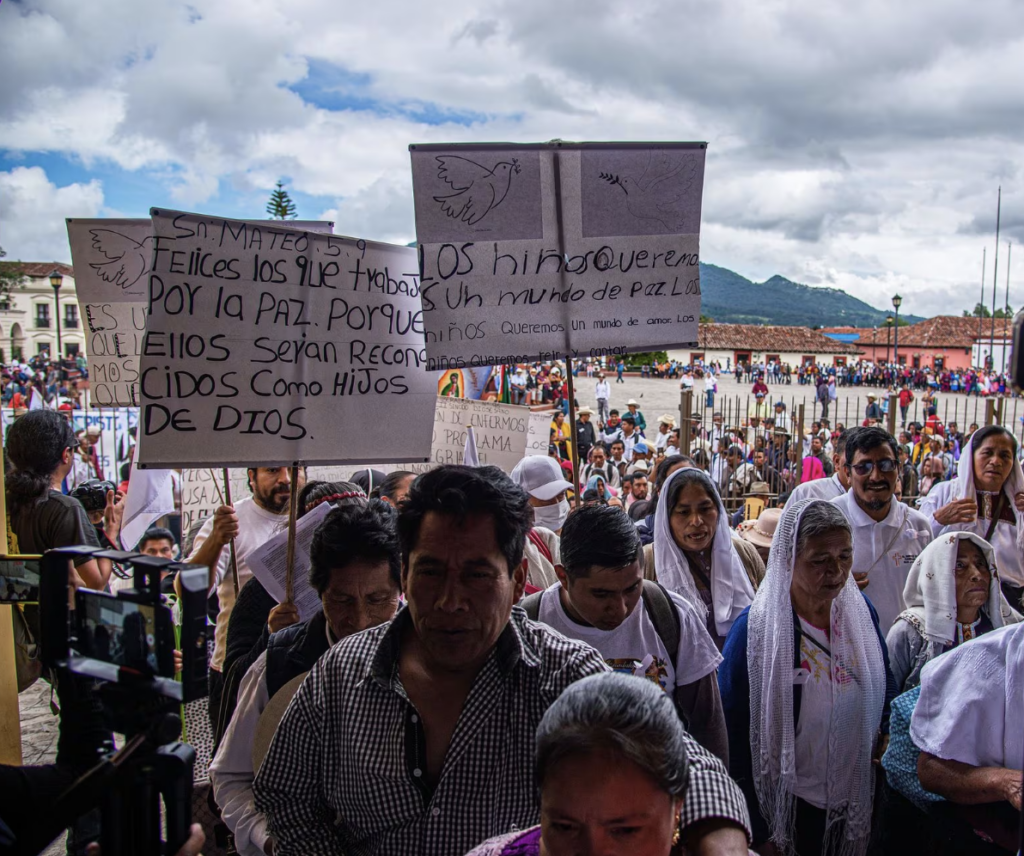
09/25/12 – The 2008 Constitutional reforms that Mexico passed to overhaul its judicial system has, among many other things, increased the cooperation between Mexico and the United States, particularly when it comes to security related efforts and initiatives. This topic was discussed earlier this month when, on September 17, Mexico’s Secretary of Interior Alejandro Poiré conducted a forum alongside U.S. Secretary of Homeland Security Janet Napolitano at the Woodrow Wilson Center in Washington, D.C. Both expressed their satisfaction with the bilateral cooperation and a shared dedication to finding a solution to and diminishing the threat of drug-related violence affecting bi-national security, a problem that the Constitutional reforms-which focus on restructuring and strengthening both the judicial and police sectors-hopes to address.
As part of the judicial reforms, Secretary Poiré specifically highlighted the role of police reform efforts in the public security situation. The discussion in D.C. was timely given that Mexico announced the same day the release of 65,000 state and local police force members after they failed to pass the mandatory evaluations, which are required under the ongoing police professionalization efforts. Poiré spoke briefly on the matter, noting that 180,000 of the 430,000 state and local police agents were screened, 36% of whom (65,000) did not pass the confidence and integrity exams, and will thus be let go. As reported in El Universal, Poiré acknowledged the concern of what may happen with those who are dismissed from the force, noting that said agents have knowledge on the structure, methods, and inner-workings of public security in Mexico that, if released to the drug cartels, could be disastrous. Nevertheless, the 115,000 who were found to have the capability of fulfilling their responsibilities as part of the police force will allegedly be certified, offered better pay and equipment, and ultimately continue to hold their positions and undergo further training and professionalization efforts. Finishing the screening of all 430,000 agents is expected to take another year, a slight delay given the initial deadline was set for early 2013.
In addition to highlighting the police reform efforts, the two secretaries discussed the ongoing bilateral collaboration and joint initiatives. Given that 2012 is an election year for both countries, Poiré and Napolitano spoke of the need for the administrations to not only continue, but to also deepen and strengthen the efforts already put in place between Mexico and the United States, including higher levels of information sharing, joint operations, and a stronger crackdown on cross border drug trafficking, reported La Jornada. Added Napolitano, “We have made significant progress on the cooperation between the governments-a level that has never been better-, but we should not sit comfortably and say that we’ve accomplished everything.” According to La Jornada, they also announced the plan to deploy staff from the Immigration and Customs Enforcement (ICE) agency to help facilitate cooperation during investigations and to be a part of the border security task force in Mexico City.
Sources:
López, Mayolo and Prado, Henia. “Omite Poiré rastreo a policías no aptos.” Reforma. August 29, 2012.
EFE. “Mexico y EU destacan avances en materia de seguridad.” El Universal. September 17, 2012.





Of course it is a lot easier to talk about improving our police than doing it. For the most part, police throughout the world are the same. And the same insights and direction for improving them hold true. Police should be well-trained and led, restrained in their use of force, honest, and courteous to all. To take a look at how to improve police, see “Arrested Development: A Veteran Police Chief Sounds Off About Protest, Racism, Corruption and the Seven Steps Necessary to Improve Our Nation’s Police” (Amazon.com in US and EU). My blog is at http://improvingpolice.wordpress.com where I discuss these and other current police improvement issues. Good luck and may we all experience not just good but great policing!